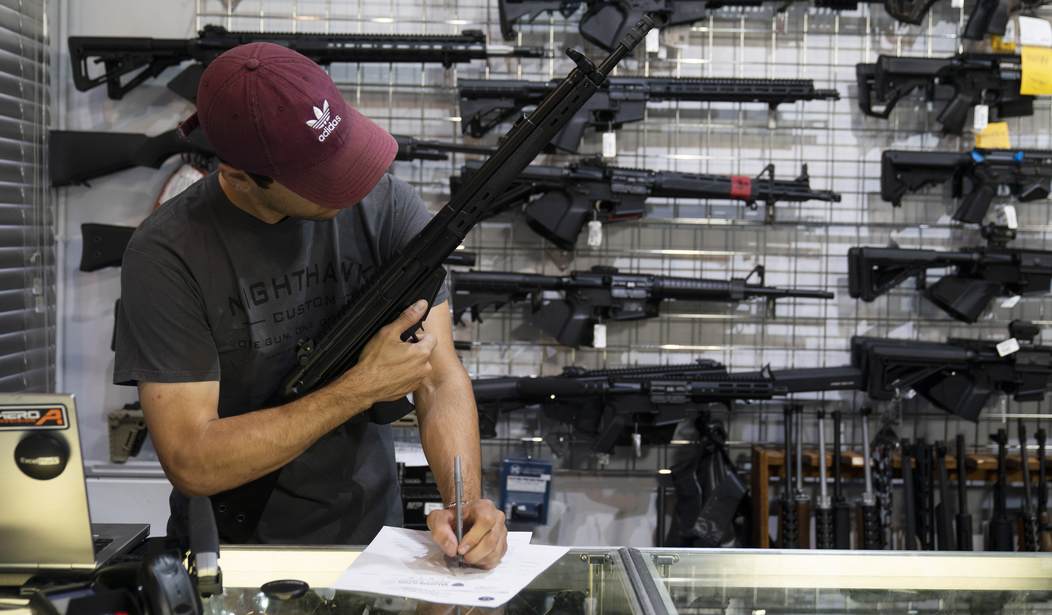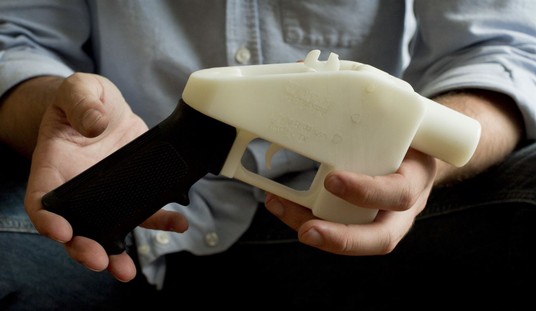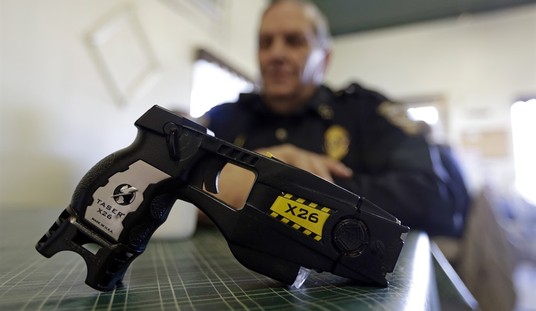The law currently doesn't provide for universal background checks at the federal level, which annoys a great many people including the entire leadership of the Executive Branch of government. None of the Biden administration favors gun rights as a whole, and universal background checks are one of the major policy desires for the entire Democratic Party establishment.
And they don't have them.
But recent changes were slipped into the Bipartisan Safer Communities Act which laid the groundwork for something that's pretty damn close.
Now, at least one media outlet is interested in looking at that language and just what it means.
According to U.S. Code, anyone “engaged in the business” of dealing in firearms must have a license to deal and thus, run background checks with every sale; more specifically, a person who sells with the goal of gaining “livelihood and profit”.
But it’s that language that has led to the so-called “gun show loophole”: a possible blind spot in the law that leaves some vague areas not covered under the definition.
“The so-called gun show loophole really is whether private individuals transferring guns to other private individuals should be required nonetheless to run a background check before they transfer that gun,” explained Robert Steinbuch, Professor of Law at the Bowen School of Law.
Under this definition of “engaged in the business”, they don’t have to. Private sellers not running a business but still looking to make a sale can do so without requiring paperwork; and in some rare cases, that very loophole is used to deal in firearms to those who shouldn’t have them.
It’s that vagueness that pushed the Biden administration to issue a rule change. In April, they amended the Gun Control Act using the Bipartisan Safer Communities Act to broaden the definition of “engaged in business”; and with it, who, exactly, qualifies for a license and must run background checks. The new language takes out “livelihood” in the definition and replaces it with dealing “predominantly to earn a profit”. So, with the new language, it can be argued it’s no longer just about those running a business, but now anyone who sells firearms to make money. The rule even clarifies that those who repeatedly advertise their sale or rent a table at a gun show fall under the definition; leaving concerned gun advocates asking – are legal, unlicensed private sales a thing of the past?
Not quite.
The rule change does include written exceptions for those “who make occasional sales, exchanges, or purchases” for or from their private collections and hobbies; although “occasional” isn’t defined outright, leaving it up to interpretation. In the final rule, it’s also explained that determining a set number of sales needed to “trigger” the license requirement doesn’t make sense as in certain circumstances, even a single firearm sale could be considered “engaged in the business”.
“Where you draw that line, of course,” Steinbuch said, “is a factual question, and a difficult one at that.”
Now, I think the reporter here is genuinely trying to provide a neutral look at the issue. I just think their own biases are so pronounced, coupled with a certain degree of ignorance about the issues surrounding guns in general, that what we get is, well, this.
You're more than free to feel otherwise
First, let's understand that there is no gun show loophole. What that means is people simply selling off their own guns to other people and they just happen to do it at a gun show. These are still private transfers.
In other words, it's no different than me listing a gun for sale in a newspaper.
Moreover, those who aren't supposed to own guns have a disturbing tendency to get them anyway. Many of those who sell them guns know they can't lawfully have them. That's always been one of the issues with universal background checks. It's not going to impact the black market dealers, who happen to be the lion's share of the problem in the first place.
Where I will give the reporter credit, and why I think they were trying to present a neutral report, even if they botched it, is in how they report on the change to defining a dealer as one who sells a gun "predominantly to earn a profit." The exceptions are problematic to an extreme. Occasional sales from one's private collection are fine, but a single sale could be enough to be considered to have "engaged in the business." What is the standard?
At least when we defined it as someone who was trying to earn a livelihood, we had a standard many could look at and know that selling a gun or two every so often wasn't enough to trigger an ATF investigation. Now, even a single gun sale might be enough. That's a bizarre world to find yourself and it's designed, in my opinion, to scare everyone into going through an FFL for each and every firearm sale. It's not mandating universal background checks, it's just trying to intimidate people into doing it anyway.
And that's a big problem that isn't getting enough attention.








Join the conversation as a VIP Member